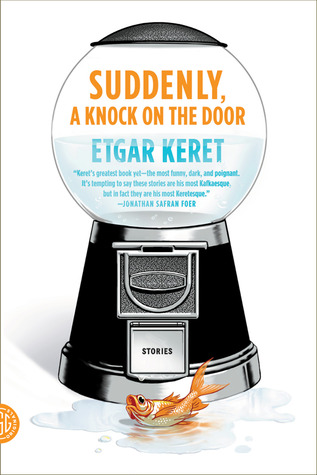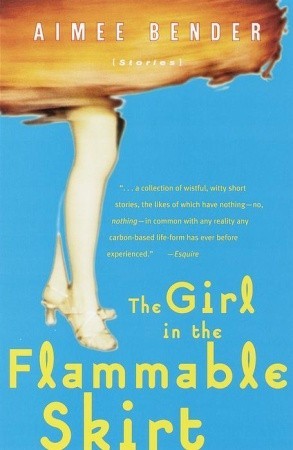Article by Kate Jones
Magical Realism is a genre of narrative fiction, originally originating amongst Latin American writers, as well as other areas of art, encompassing a range of subtly different concepts, whilst expressing a primarily realistic view of the real world. It adds to, or reveals, to these real world views magical elements, as the name would suggest, often containing an element of the supernatural, employing elements of myth, folk tales, and fables, bringing to them a contemporary and social relevance.
Characters are often given fantasy traits such as levitation, telepathy, and telekinesis. Unlike science fiction, the writers of magical realism don’t generally invent new worlds, but reveal magical and fantasy elements within the real world.
Often, the narrators of such stories hold a level of reticence, a deliberate withholding of information and explanations of the often disconcerting and displacing effects of the fantasy elements of the narrative. Hybrid stories and metafiction are rife within these stories; a story within a story.
In relation to short fiction, and particularly flash fiction, a personal favourite genre of mine, I have been interested to read many brilliant exampled employing this narrative technique, leading me to consider whether this genre is actually a perfect breeding ground for magical realism to flourish. Such recent discoveries as Carmen Maria Machado’s ‘The Husband Stitch’, a tale reminiscent of the work of Angela Carter in its feminist interpretations of women and mothers, was nominated for the Nebula award, proving the popularity and skill involved in this kind of writing.
 Two particularly strong contemporary writers working in the short story genre, Etgar Keret and Aimee Bender, are amongst some of the best exponents of this.
Two particularly strong contemporary writers working in the short story genre, Etgar Keret and Aimee Bender, are amongst some of the best exponents of this.
In Keret’s collection, Suddenly, a Knock on the Door, a tiny story called ‘Unzipping’ displays his talent for the genre. It features a young couple, Ella and Tsiki. One night, Ella feels something cutting her lip, which begins to bleed, and Tsiki claims he must have bitten her lip in the heat of passion. She is suspicious, however, and a few days later, whilst he’s sleeping, she finds a zip underneath his tongue. When she pulls it, ‘her whole Tsiki opened up like an oyster, and inside was Jurgen’. Ella relays that, unlike Tsiki, Jurgen has a ‘goatee, meticulously shaped sideburns and an uncircumcised penis’. In the order of a magical realism story, however, Ella doesn’t freak out at this event, merely folding up the ‘Tsiki wrapping’, and hiding it away in the cupboard.
Life isn’t plain sailing from then, though. Ella decides she’s not that keen on Jurgen, who drinks a lot and blames her for him leaving his native Europe. Soon, he leaves to return to Germany, to make music and live on benefits, we are told, and Ella discovers the Tsiki wrapping in the cupboard. She wonders if it had been a mistake to undo the zip, and examines the scar on her lip in the bathroom mirror. Then, she spots a zip under her own tongue, and wonders if she dare, wondering what she’d be like inside.
So this story easily fits into the magical realism genre, with its fantastical element, and its realistic setting. It also appears to question truths about people’s ‘other selves’.
 Another successful contemporary proponent of the genre is Aimee Bender. Bender has written several successful novels, including The Particular Sadness of Lemon Cake and An Invisible Sign of my Own, as well as short story collections The Girl in the Flammable Skirt and Willful Creatures. Her writing is known for its surreal plots and characters, and anyone who has read Lemon Cake in particular will recognise this as one of her qualities.
Another successful contemporary proponent of the genre is Aimee Bender. Bender has written several successful novels, including The Particular Sadness of Lemon Cake and An Invisible Sign of my Own, as well as short story collections The Girl in the Flammable Skirt and Willful Creatures. Her writing is known for its surreal plots and characters, and anyone who has read Lemon Cake in particular will recognise this as one of her qualities.
A perfect example of this appears in her short story ‘The Rememberer’. It opens with the sparkling prose: ‘My lover is experiencing reverse evolution. I tell no one. I don’t know how it happened, only that one day he was my lover and the next he was some kind of ape. It’s been a month, and now he’s a sea turtle.’ She has a perfect way of summing up a surreal encounter in a couple of paragraphs in which you find yourself believing every word she says, however preposterous they seem.
This short story goes on to delve further into the reverse evolution of the narrator’s lover, whom she claims to be ‘shedding a million years a day’. She explains calmly how she didn’t bother to call 911, as she could see he had the same sad eyes, and simply sits cradling his furred hand. In a touch of humour similar to that in the Keret story, she tells the reader how, when he comes too close, she tells him ‘NO’, loudly, explaining to the reader that she has limits.
She says she doesn’t miss the human Ben too much at first, simply wants to care for the ape Ben, like a pet, but that’s before she realises he’s not coming back. Each day, returning from work, she feels sad when she realises he isn’t there.
He eventually ends up as some kind of salamander, and she realises she’s found her limit: she cannot bear to come to the pan of water she’s placed him in and find him no longer there at all. She takes him to the ocean, and wonders if some day, a human Ben will be washed ashore, confused. She keeps a look out for his return, just in case.
Bender’s story, like Keret’s, seems to be a deeper comment on people and relationships, and how they can change and break down.
The magical realism genre appears to be flourishing, with many online literary websites specifically asking for this type of writing. To me, it seems the short story genre, and in particular flash or micro fiction, is perfectly suited to the nuances of these narratives.
***
Kate Jones is a freelance writer based in the North of England and has published features, reviews and essays in various places online including Thresholds, The State of the Arts, The Real Story and Skirt Collective. She has a passion for the short form, and has published many of her own flash fictions in places such as Spelk, Firefly, SickLit and Café Aphra, as well as winning the quarterly Flash500competition and three times winner of AdHoc Fiction. Her writing has been nominated for a Pushcart Prize.
If you enjoyed this, you might enjoy our interviews with Claire Dean, Crista Ermiya, and E. K. Pey.
Support TSS Publishing by subscribing to our limited edition chapbooks

